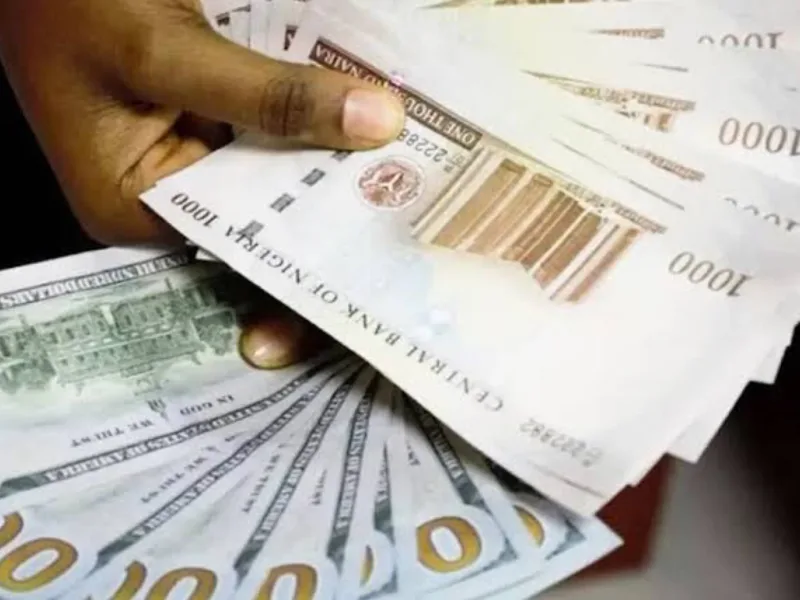In the latest developments in the Nigerian financial landscape, the Naira has witnessed a notable depreciation against the US dollar, surpassing the parallel market rate by a significant margin. According to data sourced from the Nigerian Foreign Exchange Market (NAFEM) and the Financial Markets Dealers Quotations (FMDQ), the indicative exchange rate for NAFEM soared to N1,300.15 per dollar, reflecting a substantial increase from the previous week’s figure of N1,234.49 per dollar. This represents a stark depreciation of N65.66 for the Nigerian currency.
Simultaneously, the Naira experienced a decline in the parallel market, reaching N1,255 per dollar, as compared to Monday’s rate of N1,250 per dollar. This downturn in both NAFEM and the parallel market has contributed to a widening gap between the two exchange rates, now standing at N45.15 per dollar, compared to the previous day’s margin of N15.51 per dollar.
The implications of this depreciation are multifaceted and have significant ramifications for various sectors of the Nigerian economy. One of the immediate consequences is the impact on importers and businesses that rely heavily on foreign exchange transactions. With the Naira depreciating against the dollar, the cost of importing goods and services is likely to increase, potentially leading to higher prices for consumers and inflationary pressures.
Furthermore, the depreciation of the Naira could also have adverse effects on foreign investors’ confidence in the Nigerian market. A weakening currency may deter foreign investment inflows, as investors may perceive increased risks associated with currency fluctuations. This could hinder economic growth and development efforts, as foreign investment plays a crucial role in driving infrastructure projects and job creation initiatives.
The Central Bank of Nigeria (CBN) has traditionally intervened in the foreign exchange market to stabilize the value of the Naira. However, recent trends suggest that additional measures may be necessary to address the ongoing depreciation. The CBN’s policies and interventions will be closely monitored by market participants and analysts in the coming days, as stakeholders seek clarity on the central bank’s strategy to mitigate the currency’s decline.
In response to these developments, stakeholders across various sectors are calling for proactive measures to address the root causes of the Naira’s depreciation. Some economists argue that structural reforms, including diversification of the economy and improvements in productivity, are essential for enhancing the resilience of the Naira against external shocks. Others emphasize the importance of fiscal discipline and prudent management of foreign exchange reserves to maintain stability in the currency markets.
Impact of Naira depreciation on businesses
Meanwhile, consumers and businesses are bracing themselves for potential challenges ahead, as they navigate the uncertainties posed by the Naira’s depreciation. Small and medium-sized enterprises (SMEs), in particular, may face difficulties in accessing foreign exchange at affordable rates, potentially hindering their operations and growth prospects.
In conclusion, the recent depreciation of the Naira in both NAFEM and the parallel market underscores the need for concerted efforts to address the underlying factors contributing to currency instability. As Nigeria strives to position itself as a leading economy on the African continent, maintaining a stable and resilient currency is paramount. Effective policy measures, coupled with structural reforms, will be crucial in safeguarding the value of the Naira and promoting sustainable economic growth in the long term.















